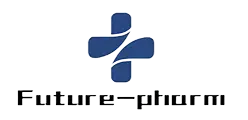
How to Source High Quality Raw Materials for Global Market Success
In today's competitive global market, the success of any manufacturing or production venture heavily relies on the sourcing of high quality raw materials. According to a recent study by McKinsey & Company, over 70% of companies in the manufacturing sector cite raw material quality as a critical factor influencing their operational efficiency and product reliability. Furthermore, the World Bank estimates that the global raw materials market is expected to reach $4.5 trillion by 2025, highlighting the growing importance of sourcing strategies that prioritize high quality raw materials. As businesses strive to position themselves favorably within this booming market, understanding how to source materials that meet stringent quality standards becomes paramount.
Moreover, the shift toward sustainability and ethical sourcing practices has added another layer of complexity to the procurement process. According to the International Institute for Sustainable Development, nearly 90% of supply chain professionals are re-evaluating their sourcing strategies to align with sustainable practices, underscoring the critical role of high quality raw materials in these efforts. As stakeholders increasingly prioritize product integrity and environmental responsibility, companies must navigate an evolving landscape that demands both quality and sustainability. This blog will provide insights into effective strategies for sourcing high quality raw materials that not only meet market demands but also align with ethical standards and sustainability goals.

Identifying Key Quality Indicators for Raw Materials in Global Markets
When sourcing raw materials for global market success, understanding key quality indicators is crucial. These indicators serve as benchmarks that help businesses assess the suitability of various materials for their products. One of the primary indicators is material composition. Knowledge of the exact chemical and physical properties can directly influence performance, durability, and safety in the final product. Companies must ensure that their suppliers provide comprehensive material specifications backed by certifications or testing results. Another important quality indicator is traceability. In today's global supply chains, the ability to trace a material’s origins impacts not only quality but also compliance with environmental and social standards. Ensuring that raw materials come from reputable sources minimizes risks related to ethical sourcing and can enhance a company’s reputation in a competitive marketplace. Businesses should prioritize suppliers who can provide transparent supply chain documentation. Lastly, performance standards such as industry-specific testing and evaluations can act as critical quality indicators. Depending on the industry, certain raw materials may be subject to stringent regulations and standards that dictate the required testing protocols. Establishing a robust quality assurance process that includes these tests can help businesses safeguard against subpar materials entering production lines, ultimately leading to higher customer satisfaction and loyalty. By focusing on these key quality indicators, companies can bolster their supply chain resilience and achieve sustained success in global markets.

Evaluating Supplier Reliability and Transparency: Best Practices for Sourcing
When sourcing high-quality raw materials for global market success, evaluating supplier reliability and transparency is paramount. According to a report by Beroe, 57% of sourcing professionals cite supplier reliability as a critical factor influencing their buying decisions. This emphasizes the need for a thorough assessment of potential suppliers, focusing not only on price but also on their operational capabilities, quality control measures, and adherence to regulatory standards.
One effective strategy to gauge supplier reliability is to conduct comprehensive background checks, including client references and financial stability assessments. The 2022 Supply Chain Resilience Report highlights that companies with robust supplier vetting processes experience 30% fewer disruptions, demonstrating the tangible benefits of upfront diligence. Furthermore, implementing a clear communication framework fosters transparency, allowing buyers to track orders and materials through each production stage.
Transparency in sourcing can also be enhanced through technology. For instance, blockchain solutions enable companies to obtain real-time data about raw material origins and supplier practices, ensuring compliance with ethical sourcing standards. According to a survey by IBM, 46% of consumers express a preference for brands that are transparent about their supply chains, indicating that ethical commitment not only influences supplier selection but can also enhance brand reputation in the global market.

Understanding Industry Standards and Compliance for Quality Assurance
To achieve success in the global market, sourcing high-quality raw materials is paramount. However, understanding and adhering to industry standards and compliance regulations is just as crucial in ensuring quality assurance. The complexity of global supply chains necessitates a thorough grasp of both local and international compliance requirements, which vary significantly by industry.
In many sectors, such as manufacturing and food production, maintaining compliance with established industry standards—like ISO, GMP, and HACCP—can directly impact product quality and marketability. These standards often dictate specific quality benchmarks that raw materials must meet before they can be integrated into production processes. Failure to comply can lead not only to subpar products but also to legal repercussions and damage to brand reputation.
Moreover, businesses must foster transparent relationships with suppliers who uphold these standards. Regular audits and assessments can help ensure that raw materials are sourced from reputable suppliers who can demonstrate compliance with the necessary regulations. By implementing stringent vetting processes and emphasizing quality assurance, companies can build a resilient supply chain that supports their commitment to excellence in the global marketplace.

Leveraging Technology and Data Analytics in Material Sourcing Decisions
In the rapidly evolving global market, sourcing high-quality raw materials has become a crucial factor for success. Leveraging technology and data analytics in material sourcing decisions can significantly enhance the efficiency and effectiveness of the procurement process. According to a report by McKinsey & Company, companies that effectively integrate data analytics into their supply chain have seen an increase in operational efficiency by up to 20%. This underscores the necessity of utilizing advanced tools to make informed decisions about sourcing raw materials.
Data analytics empowers businesses to closely monitor market trends, supplier performance, and raw material availability. By analyzing historical data, organizations can predict price fluctuations and identify potential risks associated with supply chain disruptions. For instance, a recent study published by Deloitte highlights that 70% of companies utilizing predictive analytics are better prepared for market changes, allowing them to maintain a competitive edge. By integrating such analytics into their sourcing strategies, businesses can optimize supplier selection processes and negotiate better terms.
Moreover, leveraging technology such as blockchain can enhance transparency and traceability in the sourcing of raw materials. According to a report from Gartner, organizations that implement blockchain in their supply chains can reduce sourcing fraud by up to 50%. This level of transparency not only builds trust with consumers but also ensures compliance with environmental and social governance (ESG) standards, which is increasingly becoming a requirement in the global market. As technology continues to innovate, businesses must harness these tools to improve their sourcing strategies and drive sustainable growth.
Building Sustainable Supply Chains: Importance of Ethical Sourcing Practices
Building sustainable supply chains has become increasingly crucial in today’s global market, particularly as ethical sourcing practices gain prominence. The recent discussions around price inflation in renewable energy supply chains highlight the critical role these practices play in stabilizing supply and maintaining affordability. By prioritizing ethical sourcing, businesses can cultivate strong relationships with suppliers who are committed to sustainability, thereby ensuring a more resilient supply chain that can withstand market volatility.
Ethical sourcing not only helps mitigate risks associated with fluctuating prices but also fosters a positive brand image. Consumers today are more informed and concerned about the origins of the products they purchase. By demonstrating a commitment to responsible sourcing, companies can enhance their reputation, attract conscientious customers, and build loyalty. Moreover, aligning sourcing practices with ethical standards encourages innovative solutions to reduce waste and promote resource efficiency, ultimately benefiting both the environment and the bottom line.
Furthermore, engaging in ethical sourcing practices equips businesses to meet increasingly stringent regulatory requirements and consumer expectations. As regulations surrounding environmental and social governance continue to evolve, companies that proactively embrace ethical sourcing are better positioned to adapt to these changes. By integrating sustainable practices into their sourcing strategies, businesses not only contribute to a healthier planet but also pave the way for long-term success in the global marketplace.

